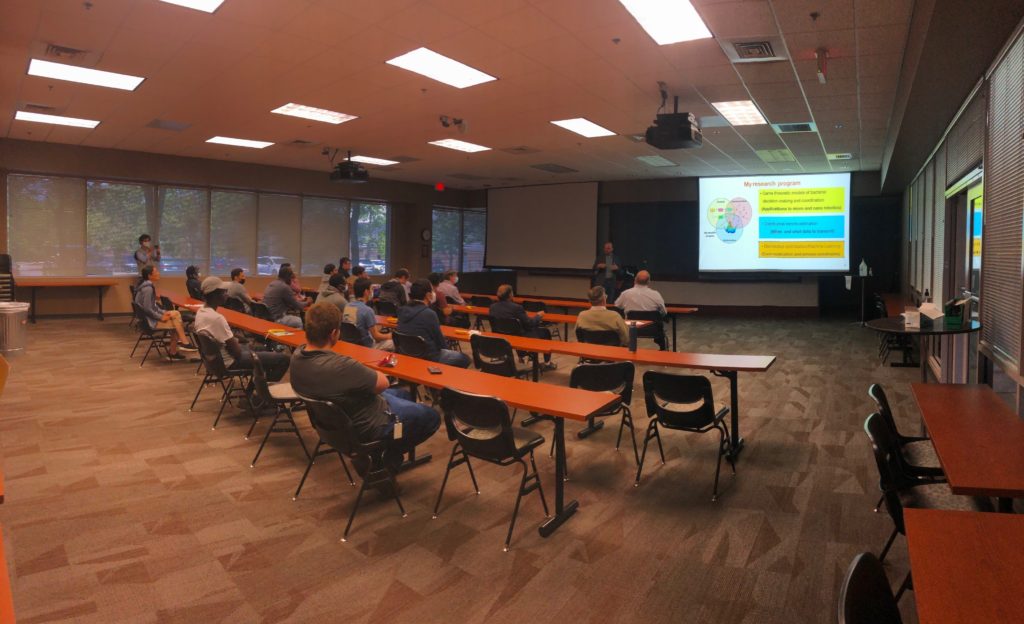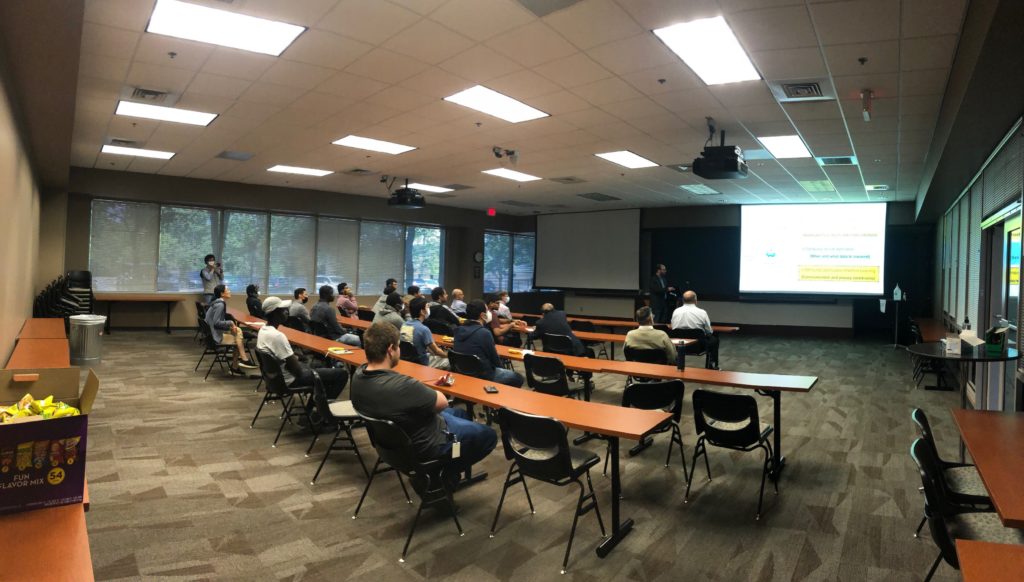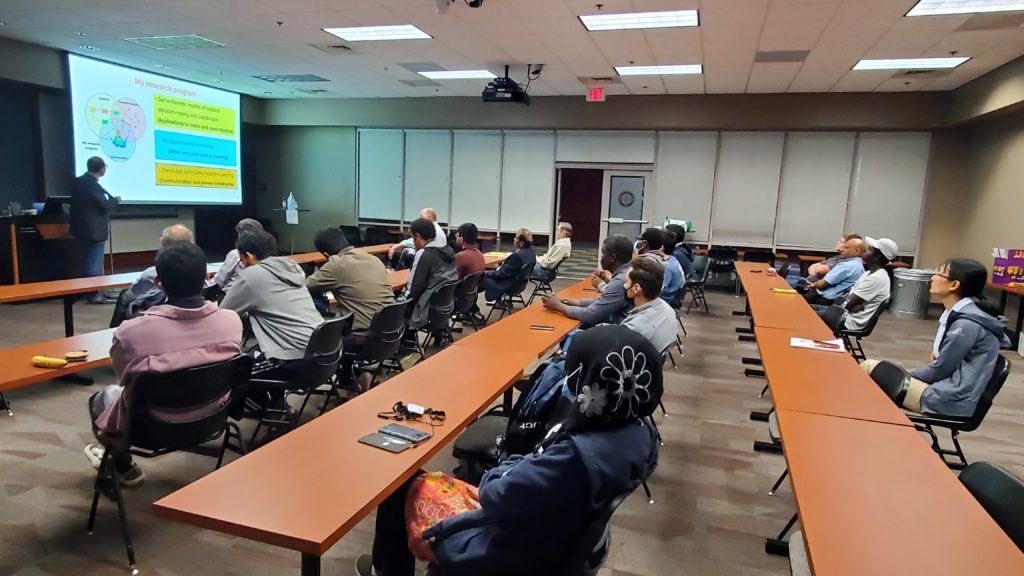2022 ECE GRAD STUDENT RESEARCH PRESENTATION COMPETITION
- Date: 05 Dec 2022
- Time: 02:00 PM to 03:00 PM
- All times are (UTC-05:00) Eastern Time (US & Canada)
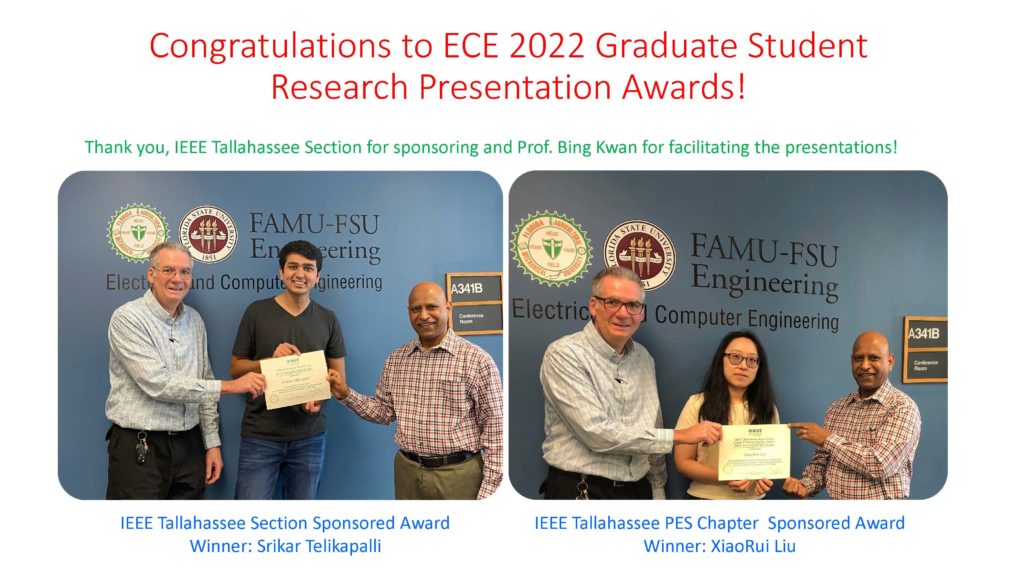
BUILDING A ROBUST WORKFORCE IN ELECTRIC POWER ENGINEERING – DEMOCRATIZING TECHNICAL EDUCATION NATIONALLY
Dr. Ned Mohan
Biography:
Ned Mohan (LF-IEEE) joined the University of Minnesota in 1975, where he is Oscar A. Schott Professor of Power Electronic Systems and Morse-Alumni Distinguished Professor. He received his bachelor’s degree from the Indian Institute of Technology-Kharagpur in 1967. His PhD in Electrical Engineering and Master’s in Nuclear Engineering are from UW-Madison. He has written 6 textbooks; all together, they have been translated into nine languages. He has graduated 52 PhDs to date. His area of research is in power electronics applied to power systems and he holds several patents. He has received many awards. He is a Fellow of the IEEE, a Regents Professor at the University of Minnesota, and a member of the National Academy of Engineering.
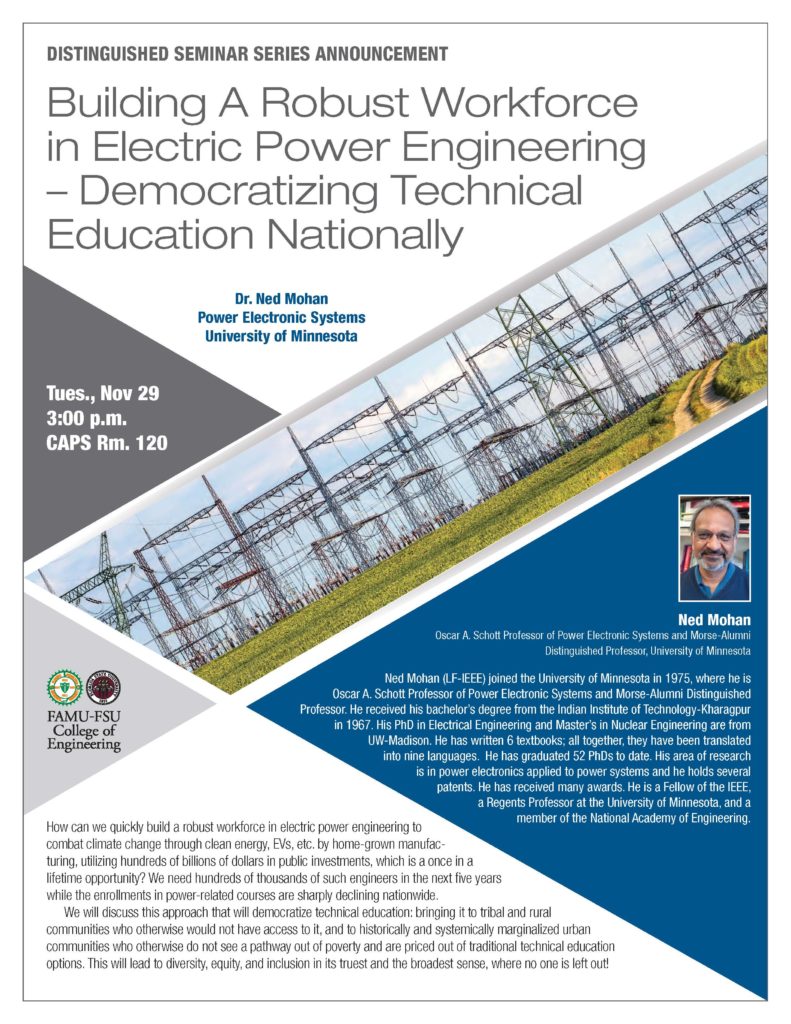
ZERO EMISSION ELECTRIC AVIATION WITH GREEN HYDROGEN
Technical Seminar of IEEE Tallahassee PES Chapter
Electrical and Computer Engineering Department – 2022 Lunch and Learn Summer Series
Presenter: Professor Sastry Pamidi, Ph.D., Department Chair of Electrical and Computer Engineering, FAMU-FSU Engineering and Associate Director, Center for Advanced Power Systems
Time: 12:00 – 13:00 PM, Tuesday, June 14, 2022
Location: FAMU-FSU College of Engineering, Room A115
Abstract
The lecture will introduce electric aviation and the opportunities to eliminate emissions by using energy efficient superconducting technologies and green hydrogen as fuel. The concepts of superconductivity, green hydrogen, and electric aviation will be introduced.
Brief Bio of Professor Sastry Pamidi
Sastry Pamidi, Ph.D. is a professor serving as the Chair of the Department of Electrical and Computer Engineering at FAMU-FSU College of Engineering and the Associate Director of the Center for Advanced Power Systems where he also leads a multidisciplinary research group focusing on superconducting power devices for electric transport applications. His research interests are in high power density superconducting devices, advanced AC loss measurements, and applied cryogenics related to superconducting power applications. He has established advanced research facilities and test beds to characterize superconducting cables cooled with gaseous helium. He helped establish a high voltage engineering laboratory that specializes in the cryogenic dielectric characterization of insulation materials and designs for superconducting power applications. He has collaborated with many research groups around the world and delivered invited presentations at many international conferences. He authored and co-authored more than 200 publications in journals, conference proceedings, and three book chapters. He has active collaborations with superconducting wire manufacturers and several small businesses. He has served on the technical committees of many international conferences and as a guest technical editor for many special issues of the IEEE Transactions on Applied Superconductivity. Dr. Pamidi is a Fellow of the Cryogenic Society of America.
ZERO EMISSION ELECTRIC AVIATION WITH GREEN HYDROGEN
Technical Seminar of IEEE Tallahassee PES Chapter
Electrical and Computer Engineering Department – 2022 Lunch and Learn Summer Series
Presenter: Professor Sastry Pamidi, Ph.D., Department Chair of Electrical and Computer Engineering, FAMU-FSU Engineering and Associate Director, Center for Advanced Power Systems
Time: 12:00 – 13:00 PM, Tuesday, June 14, 2022
Location: FAMU-FSU College of Engineering, Room A115
Abstract
The lecture will introduce electric aviation and the opportunities to eliminate emissions by using energy efficient superconducting technologies and green hydrogen as fuel. The concepts of superconductivity, green hydrogen, and electric aviation will be introduced.
Brief Bio of Professor Sastry Pamidi
Sastry Pamidi, Ph.D. is a professor serving as the Chair of the Department of Electrical and Computer Engineering at FAMU-FSU College of Engineering and the Associate Director of the Center for Advanced Power Systems where he also leads a multidisciplinary research group focusing on superconducting power devices for electric transport applications. His research interests are in high power density superconducting devices, advanced AC loss measurements, and applied cryogenics related to superconducting power applications. He has established advanced research facilities and test beds to characterize superconducting cables cooled with gaseous helium. He helped establish a high voltage engineering laboratory that specializes in the cryogenic dielectric characterization of insulation materials and designs for superconducting power applications. He has collaborated with many research groups around the world and delivered invited presentations at many international conferences. He authored and co-authored more than 200 publications in journals, conference proceedings, and three book chapters. He has active collaborations with superconducting wire manufacturers and several small businesses. He has served on the technical committees of many international conferences and as a guest technical editor for many special issues of the IEEE Transactions on Applied Superconductivity. Dr. Pamidi is a Fellow of the Cryogenic Society of America.
Surface Treatment of Materials for Enhanced Adhesion for Terminations of Power and Data Cables
IEEE Tallahassee PES Chapter Technical Seminar
Title: Surface Treatment of Materials for Enhanced Adhesion for Terminations of Power and Data Cables
Presenter: Horatio Rodrigo, PhD, Visiting Researcher, Center for Advanced Power Systems, Tallahassee, Florida
Time: 2:00 – 3:00 PM, Thursday, May 19, 2022
Location: Center for Advanced Power Systems, Research Foundation Building A, Conference Room 140, 2000 Levy Avenue, Tallahassee, Florida 32310
Refreshments will be served
Abstract
Cable terminations are an important aspect of any system where cables are used to transfer electric power and data. Often the cables fail not along the length but at the terminations. This is a short overview of methods employed to improve the performance of cables. Two methods that are widely used for enhancement of bonding of materials are presented. A few relevant results used as standards for determining the strength of bonds are also presented.
Brief Bio of Dr. Horatio Rodrigo
Horatio Rodrigo graduated with a Bachelor of Electrical Engineering from the Royal Melbourne Institute of (RMIT). After a three-year stint as a test engineer, he proceeded to the University of Liverpool, UK and successfully completed a PhD in the department of Electrical Engineering, on the physics of gas discharges and high voltage engineering.
Since graduating from University of Liverpool, he was a post doc at Oak Ridge National Laboratory, The University of London, and University of Melbourne. He then joined The Commonwealth Scientific and Industrial Research Organization (CSIRO) as a senior Research Scientist in Electrical Plasmas. After that he joined Michigan Technological University in May 1991 as an Associate Professor. Between May 1997 and June 1999, he was a visiting scientist in Oak Ridge National Laboratory, working in the development of the first superconducting cable in collaboration with South Wire Company in Carrollton Georgia. He was back in RMIT until 2001. From January 2001 to February 2002, he was awarded a Senior Research Fellow position at the University of Manchester UK. The fellowship was awarded by the Engineering and physical Sciences Research Council of UK & the Royal Society. He briefly returned to RMIT. In May 2004 he joined CAPS as an Associate Scholar Scientist. He left CAPS in October 2012 and worked for Dielectric Sciences in Chelmsford Massachusetts until June 2017.Since then he has been an independent consultant working on a variety of engineering related fields.
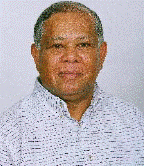
Dr. Horatio Rodrigo
Accelerating distributed optimization under communication constraints: the case for expanding quantizers, and maximal
Wednesday, April 20th, 2022
Joint Seminar of IEEE Tallahassee PES Chapter and the Center for Advanced Power Systems
Title: Accelerating distributed optimization under communication constraints: the case for expanding quantizers, and maximal dissent gossiping algorithms
Presenter: Marcos Vasconcelos, PhD, Research Assistant Professor, Commonwealth Cyber Initiative,
Department of Electrical and Computer Engineering, Virginia Tech.
Time: 2:00 – 3:00 PM, Tuesday, April 19, 2022
Location: Center for Advanced Power Systems, Research Foundation Building A, Seminar Room 120, 2000 Levy Avenue, Tallahassee, Florida 32310
Refreshments will be served
Abstract
Next-generation cyber-physical systems will seamlessly incorporate machine learning capabilities to guarantee performance in non-stationary environments. In decentralized cyber-physical systems, real-time, collaborative machine learning methods require a collection of agents to train a global model efficiently based on local processing and information exchange over a network. Such problems can be posed using the framework of distributed optimization.
This talk will discuss distributed optimization under two types of communication constraints among the networked agents. First, we will consider a distributed two-time-scale gradient method for solving distributed convex optimization problems over a network of agents when the communication bandwidth is limited. So, information exchanged between the nodes must be quantized. Then, using a novel analysis technique, we show that our two-time-scale algorithm improves the convergence rate compared to existing works. In the second part of the talk, we will discuss a set of agents collaboratively solving the distributed convex optimization problems, asynchronously, under the constraint that each agent can communicate with only one of its neighbors. In that case, we would like to pick the agent holding the most informative local estimate. We propose a new algorithm where the agents with maximal dissent average their estimates, leading to an information mixing mechanism that often displays faster convergence to an optimal solution. However, unlike most available algorithms, the resulting algorithm is state-dependent, complicating the convergence analysis. Yet, we prove the convergence of max-dissent subgradient methods using a unified framework that can be applied to other state-dependent distributed optimization algorithms.
Brief Bio of Dr. Marcos M. Vasconcelos
Marcos M. Vasconcelos has been a research assistant professor with Virginia Tech’s commonwealth cyber-initiative (CCI) with a courtesy appointment in the department of electrical and computer engineering since 2021. Upon graduation, he was a postdoctoral research associate in the electrical engineering department at the University of Southern California from 2016 to 2020, where he worked with Prof. Urbashi Mitra. He received his Ph.D. in control theory and optimization from the University of Maryland, College Park, under the guidance of Prof. Nuno C. Martins in 2016. His research interests are in the general area of multi-agent systems (both natural and artificial) and designing intelligent devices that can learn and adapt to make provably optimal distributed decisions with applications in robotics and sensor networks.
